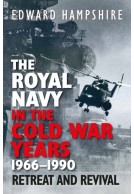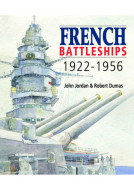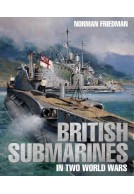The Petrol Navy (Hardback)
British, American and Other Naval Motor Boats at War 1914 – 1920
(click here for international delivery rates)
Need a currency converter? Check XE.com for live rates
| Other formats available | Price |
|---|---|
| The Petrol Navy eBook (96.0 MB) Add to Basket | £9.98 |
On the outbreak of war in 1914, the Royal Navy found it required more small craft than it possessed to carry out minesweeping, anti-submarine patrols and coastal defence. This led to the formation of an auxiliary force of civilian vessels, including motor pleasure boats and yachts, relatively new types of craft powered by the internal combustion engine. The inclusion of these vessels came about when a group of motor boat owners suggested to the Admiralty that their vessels could play an important role in the defence of Britain. The result was the formation of the Royal Naval Motor Boat Reserve (RNMBR) in 1912.
By mid-1915, the demands of naval duty had proved too much for these quirky craft. A meeting in the USA led to their replacement by American-designed Elco motor launches (MLs), of which 550 were purchased, and these Elco launches gave great service for the rest of the war, usually officered by RNVR personnel who won three Victoria Crosses. In addition to the Elcos, in 1915 some naval officers developed the hydroplaning coastal motor boats (CMBs), which served with equal distinction in the latter part of the war. Post-war, both types saw valuable service in the occupation of the Rhineland and in the Baltic campaign, where three more VCs were won.
Other countries adopted similar craft. In Italy, the MAS torpedo motor craft achieved fame and success. And in France, MLs supplied by Britain, and by Elco, played their part. Germany too utilised small motor vessels, including the torpedo-armed Luftschiffmotorboote and Fernlenkboot remotely controlled designs. And when America entered the war, she built a fleet of so-called ‘sub chasers’, wooden-built and designed to counter U-boats along her East Coast.
The Petrol Navy tells the stirring story of these motor-driven boats at war, of their development and operations and of the many colourful characters who were their captains and crew. It will acquaint historians and enthusiasts with an important and previously untold aspect of the naval war, and will engross those with a more general interest in the First World War.
‘A fascinating book produced from the prolific pen of the author Steve Dunn….An aspect of the book that really stands out is the abundance of photographs and drawings that feature throughout. It is probable that some of these have not featured in a book such as this before….All in all, a thoroughly readable and informative account of what has been a little-known area of naval history. It is very strongly recommended for both the serious student and the casual reader’
Simon Haill in The Naval Review, 23 February 2024
Read the full review here.
"If you're looking for a different view of the First World War at sea, The Petrol Navy is an admirable addition to your collection."
The Nautilus Telegraph - Nov/Dec 2023
Read the full review here.
The structure of the book is logical and accessible, packed with detail, and is delivered with this writer’s customary crisp, lucid and erudite style. The introduction, concluding chapters and impressive list of sources add much value, as do the appendices and the excellent detailed plans of the key vessels. The photographs are well chosen, clear and relevantly seeded throughout the text. The production quality is excellent, and all in all this book represents excellent value in all senses."
The Mariner's Mirror - The International Quarterly Journal of the Society For Nautical Research - Volume 109:4
‘This is a thoroughly enjoyable read from one of the best researchers and writers on WW1 British naval history’.
Warships International Fleet Review, October 2023
This well-written book is an important addition to the naval history of World War I. It is highly recommended to anyone interested in small military boats or naval history in general.
Roads to the Great War
Read full review here
"The Petrol Navy is a sharply focused, remarkably clear and comprehensive account of this little known aspect of the First World War which at long last fills a gap in our knowledge. Most highly recommended."
Military Historical Society Bulletin
"It makes for an entertaining and more personal account of the fighting."
The Armourer – August 2023
‘This well-written book is an important addition to the naval history of World War I. It is highly recommended to anyone interested in small military boats or naval history in general’.
Peter L. Belmonte, Roads to the Great War
Read the review here
"I thoroughly enjoyed this book and recommend it highly for all those interested in naval history and marine technological developments."
Australian Naval Institute
Read the review here
About Steve R. Dunn
STEVE R DUNN is an author with a special interest in the Royal Navy of the late nineteenth century and the First World War. He has written biographies and narrative histories including Blockade, Securing the Narrow Sea, Bayly's War, Southern Thunder, The Battle of the Baltic, The Power and the Glory, British Naval Trawlers and Drifters in Two World Wars, The Harwich Striking Force, The Petrol Navy, Steam Yachts at War and most recently Spectre of Invasion, all published by Seaforth. Steve lives in Worcestershire.





















